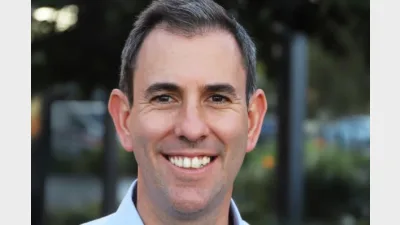Chalmers hands down 2024–25 budget



Treasurer Jim Chalmers has handed down his third budget.
In his third budget speech, the Treasurer highlighted issues facing Australians including inflation, rising interest rates and cost of living.
“This is a budget for the here‑and‑now and it’s a budget for the decades to come,” he said.
“It’s a responsible budget that helps people under pressure today – and invests in the promise and potential of the more prosperous future we can make together.
Macro forecasts
Real GDP is forecast to grow by 2 per cent in 2024–25, 2.25 per cent in 2025–26 and 2.5 per cent in 2026–27.
Inflation remains elevated but has moderated to less than half of its peak in 2022, and Chalmers said he expects it to fall to the RBA’s target of 2–3 per cent by the end of this year.
CPI inflation rose 1 per cent in the March 2024 quarter and by 3.6 per cent annually, according to data from the Australian Bureau of Statistics (ABS).
Since the last budget in May 2023, Australia has seen two interest hikes from 3.85 per cent to 4.35 per cent, but the last four months have all been pauses. However, contrary to hopes that rate cuts will begin soon, there is the possibility of further hikes instead.
Real wages have risen for three consecutive quarters and returned to annual growth at the end of 2023. Real wages are expected to rise further and grow by 0.5 per cent through the year to the June quarter 2024.
Unemployment is expected to rise slightly to 4.5 per cent in 2024–25 but will remain below pre-pandemic levels and then fall slightly to 4.25 per cent in 2027–28.
Superannuation
Two elements of this year’s budget related to superannuation, the first being the introduction of superannuation paid on parental leave.
Parents who utilise the government-funded paid parental leave will be able to receive superannuation from July 2025, paid at 12 per cent of the parental leave rate. The government will provide $1.1 billion over five years from 2023–24 and $0.6 billion per year ongoing on this.
This is an issue that has been widely called for, and the government faced criticism last year for failing to include it.
Chalmers said: “When it comes to those first months of your child’s life, you can’t put a price on being there. And you shouldn’t pay a price for being there. That’s why we’ve provided $1.1 billion to pay super on government‑funded parental leave.
“This will make the super system fairer, reduce the gender gap and benefit 180,000 families a year.”
There was also a focus on enforcement activity and reclaiming unpaid superannuation.
The government will provide $187 million over four years from 1 July 2024 to the ATO to strengthen its ability to detect, prevent and mitigate fraud against the tax and superannuation systems.
In line with this, it will recalibrate the Fair Entitlements Guarantee Recovery Program to pursue unpaid superannuation entitlements owed by employers in liquidation or bankruptcy from 1 July 2024.
This will achieve efficiencies of $13 million over four years from 2024–25 (and $29.9 million over the medium term) through an expected increase in tax receipts of $63.1 million over four years from 2024–25 (and $114.4 million over the medium term), with $44.4 million over four years from 2024–25 (and $96.9 million over the medium term) expected to be paid to superannuation funds.
Recommended for you
Financial Services Minister Stephen Jones has shared further details on the second tranche of the Delivering Better Financial Outcomes reforms including modernising best interests duty and reforming Statements of Advice.
The Federal Court has found a company director guilty of operating unregistered managed investment schemes and carrying on a financial services business without holding an AFSL.
The Governance Institute has said ASIC’s governance arrangements are no longer “fit for purpose” in a time when financial markets are quickly innovating and cyber crime becomes a threat.
Compliance professionals working in financial services are facing burnout risk as higher workloads, coupled with the ever-changing regulation, place notable strain on staff.















